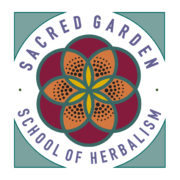UPCOMING EVENTS
Registration for Buds & Blossoms Program is now open

Sunday Morning Tea Ceremonies

with Silvy Franco
Join Silvy for a meditative ceremony to commune with Camelia sinensis. Come for quiet reflection as you sip on several cups of tea following Japanese tradition. Ceremony begins at 9:30 am and goes for an hour. Pre-registration is required.
Suggested Donation: $25
+++++++++++++
Community Medicine Making Circles

with Jen Halima
Come create botanical medicine and explore the foundations of herbalism. Build a home apothecary from locally grown herbs. You will make herbal oils, syrups, tea blends, tonics, nourishing treats and more!
6 Classes, next one July 26th
+++++++++++++
Intro to Plant Communication ~ Aug 8th
&
Flower Essences 101 ~ Aug 9th
with Teacher, Author, & creator of Brigid’s Way ~ Jen Frey

Intro to Plant Communication
(Aug 8th, 6:30-8:30pm)
When you attend this delightful class, you’ll learn:
~Plants are conscious beings who learn, have memory, and respond to their surroundings, including our emotions.
~Humans and Plants have a deep bond.
~Communicating with Plants is a tool for our individual and collective evolution and healing.
Flower Essences 101
(August 9th, 9 am- Noon)
During this interactive workshop we will:
~Explore the healing gifts of several Essences
~Make an Essence together which you will take home to continue your exploration of Flower Essences.




Yarrow
/in Herb of the Month /by Ashley Davis(Achillea millefolium)
Yarrow’s genus name ‘Achillea’ refers to the Greek warrior Achilles who is said to have carried this plant with him on the battlefield. This speaks to the traditional use of yarrow for wound-healing, a use for which it is best known.
I personally used a yarrow poultice and did a yarrow foot soak when I put a 1/2″ deep gouge in the top of my foot with a hand sickle. It worked great. The bleeding was slowed and the wound remained clean. It healed quickly without the need for stitches. Yarrow is a must-have for any first aid kit, but its uses go way beyond first aid…
Parts Used: aerial parts
Actions: vulnerary, antiseptic, hemostatic, emmenagogue, bitter tonic, circulatory tonic, diaphoretic, anti-inflammatory
Taste: bitter, aromatic
Energetics: Cooling (but also sometimes warming), drying (but also sometimes moistening)
Uses: Yarrow’s vulnerary (tissue-healing), antiseptic (stops infection) and hemostatic (stops bleeding) properties make it ideal for treating a variety of cuts and wounds (including perineal tears, hemorrhoids and any kind of hemorrhaging). A fresh leaf poultice applied directly to the wound is great if you have access to the fresh leaf. If not, you can make a tea from the dried leaf to use as a wash, a soak or a compress.
Taken internally as a tea or tincture yarrow can help staunch excessive menstrual bleeding, resolve bruises, and bring fresh blood flow to cold/stagnant areas. This is why herbalist Matthew Wood refers to yarrow as the “great normalizer” of the blood. Yarrow can work amphoterically (bi-directionally). It can staunch heavy flow and bring on a fuller flow when menses is scanty. It can both aid in clotting and reduce clotting/thin the blood, depending on what the body needs.
In addition to regulating the viscosity of the blood, yarrow is a blood-mover. Yarrow flowers especially excel as a diaphoretic, meaning that they move blood to the surface to release heat through the pores. This is why it has been a favorite remedy for fevers. Yarrow is often combined with elder flower and peppermint as a cooling/relaxing diaphoretic tea (best drunk hot).
As a cold infusion, yarrow exerts a stronger influence on the digestive & urinary systems. As a urinary antiseptic, it can be helpful in cystitis. And as a bitter tonic, yarrow stimulates digestive secretion, strengthening assimilation & elimination. Its tissue-healing action can be felt in the GI tract where it helps to heal leaky gut, and inflammation of the intestines (colitis, gastritis, diverticulitis, etc.)
Indications: lacerations, bruises, active hemorrhaging, nosebleeds, excessive menstrual bleeding, dark or scanty menses with clots, thick/viscous blood with clots, history of or high risk for strokes, venous congestion, varicose veins, stagnation of portal vein, acute fever (especially when the skin is cool and the person is not breaking a sweat), cystitis, gastritis, colitis, diverticulitis (any ‘itis’), stroke.
With all that I have read about the possible complications of both ‘ronavirus and the injections, I cannot help but think of yarrow. It could be very beneficial for reducing the side effects of the injections, including clotting, strokes, and bleeding disorders. ‘Ronavirus is primarily a vascular pathology and yarrow, as the ‘normalizer of the blood’ could be very appropriate for these times. Even more so when you consider the relationship between this pandemic and 5G…yarrow flower essence offers protection against environmental toxins. It is said to strengthen our own forcefield and shield you from all forms of toxic energies. So I think it is a very appropriate herb on all levels- physical as well as spiritual.
Dosage: Dosage plays a huge role in the physical vs spiritual effects. With a tincture, you can use anywhere from 1-40 drops. The smaller drop doses work on the subtler emotional & spiritual energies while the larger doses (20-40 drops) have a stronger effect on the material body. For more information on energetic vs material dosing, check out our Dosing Guide. For a yarrow infusion, 1 TBSP of herb to 12 oz. boiling water steeped for 10 minutes is pretty standard.
Harvesting: You can start to harvest the leaves in late spring, before the flower comes. The flowers are harvested at their peak (early-mid summer). I like to harvest the top 6″ of the flower stalk, including the smaller leaves on the stalk. These leaves & flowers can be tinctured fresh or dried for tea.
Cautions: because it is a blood-mover, yarrow should not be used in high doses during pregnancy. Small amounts are fine when it is indicated. Also, yarrow belongs to the Asteraceae family, which includes ragweed, chamomile, sunflower, etc. Some people have allergies to plants in this family.
Products: You can find yarrow in many of our house-made products, including:
Works Consulted:
Wood, Matthew. “The Indispensable Blood Remedy” https://www.matthewwoodherbs.com/Yarrow.html